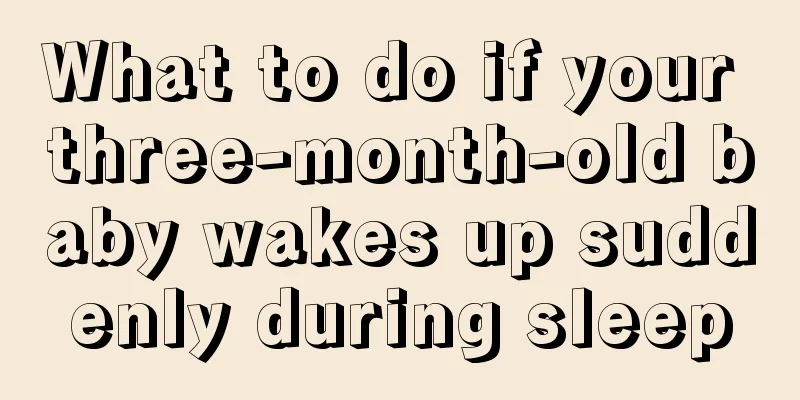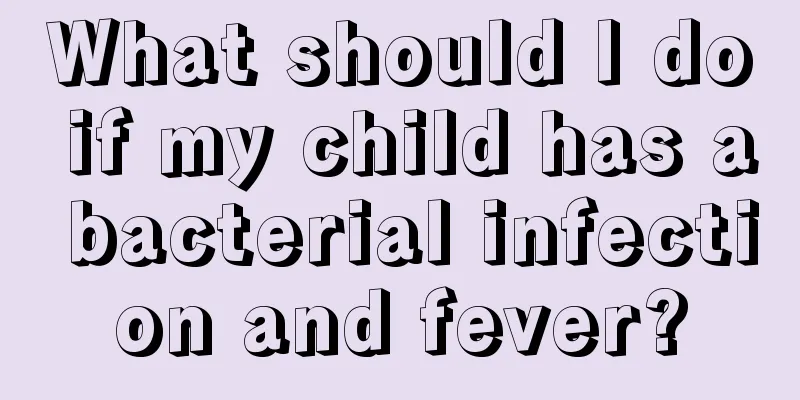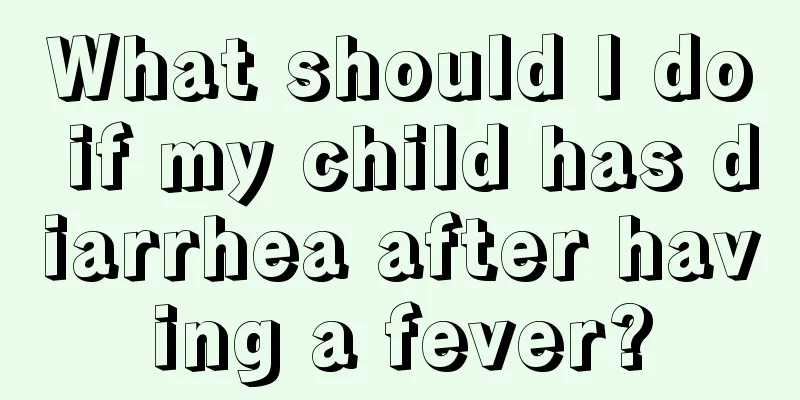How many teeth is normal for a nine-month-old baby

|
There is an old saying that a baby's changes are very obvious, and he may even look different every day. Watching the baby's changes will make the elders in the family very happy. It is a very happy thing when a baby grows teeth. This is because when a baby grows teeth, mothers can add other complementary foods in addition to giving the baby daily breast milk. This can supplement the nutrients needed by the baby every day and promote the baby's healthy growth. So how many teeth should a nine-month-old baby have? Some babies have their deciduous teeth erupt as early as two months before birth, but most babies will have their deciduous teeth erupt 6 months after birth, starting with a pair of lower deciduous central incisors; at 8 months of age, a pair of upper deciduous central incisors erupt; after that, other deciduous teeth erupt in pairs from front to back, left and right, generally symmetrically, and erupt at the same time, with the lower teeth erupting first and the upper teeth later. At 9 months, a pair of lower lateral incisors erupt, followed by a pair of upper lateral incisors; at one year and two months, a pair of lower first deciduous molars erupt first, followed by a pair of upper first deciduous molars; at one and a half years old, a pair of lower canines erupt first, followed by a pair of upper canines; at two years old, a pair of lower second deciduous molars erupt first, followed by a pair of upper second deciduous molars. In this way, by the age of two, all 20 deciduous teeth will have come out. The method for calculating the number of deciduous teeth is: for infants under two years old, subtract 4 to 6 from the number of months. For example, the number of deciduous teeth of a 9-month-old baby is: 9-(4~6)=5~3. A 9-month-old baby should have 3 to 5 deciduous teeth. But not all babies have their deciduous teeth erupt so regularly. Some babies begin to have deciduous teeth erupt as early as 4 months after birth, while some babies do not start growing teeth until one year old. Through the above introduction, we know the approximate range of how many teeth a nine-month-old baby will have. Generally, it is about three to five teeth. However, due to the different physical conditions of babies, some babies may not have grown any teeth at nine months, or may have grown seven or eight teeth. So don't worry too much about the teething of babies, and don't blindly ignore the doctor's advice to supplement calcium for your baby. Excessive calcium intake may cause harm to your baby's health. |
<<: Treatment for neck pain in children
>>: What are the reasons for nine-month-old babies to vomit?
Recommend
What causes my baby to have recurrent oral ulcers?
Oral ulcers are a disease that can occur in all a...
Baby's face, chin and nose are red and hot
Babies are young and sometimes cannot express the...
The child's body is always shaking when sleeping
When children are sleeping, no matter what abnorm...
Is it normal for a baby to have a long body and short legs as shown by B-ultrasound?
When a woman is pregnant, she will definitely go ...
Baby's poop looks a bit like snot
If you learn more about parenting knowledge, you ...
How many stages of milk powder should a one-year-old baby eat?
Nowadays, many babies grow up drinking milk powde...
What to do if a little girl has a stomachache
Stomachache is a common symptom of disease in chi...
Who should be screened for newborn fundus?
Newborn fundus screening is a way to screen wheth...
Treatment of abdominal pain and vomiting in children
No one can escape the invasion of diseases in our...
Children with poor coordination
There are many children who have limb incoordinat...
The main cause of polycystic kidney disease in infants
What is the main cause of polycystic kidney disea...
Can a two month old baby sleep on his side?
The addition of a new member to the family is a j...
Can children drink Isatis root?
Generally speaking, children can drink Isatis Roo...
What is the reason why children’s urine is white?
Children's health has always been a concern f...
What should my baby eat if he has enteritis?
Every child is a treasure in the hearts of his pa...









